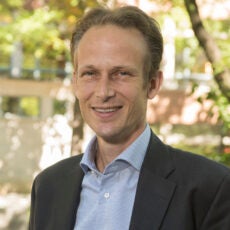Regulating Fuel Economy Standards
Project 1
This project will study what is a feasible and efficient policy to regulate air pollution from vehicles. Theoretically, optimal policy would apply a Pigouvian tax on emissions. Such a tax is technologically infeasible, and most countries instead rely heavily on exhaust standards for new vehicles that limit air pollution emissions per mile. These standards regulate air pollutants like nitrogen oxides and have very different properties than fuel economy regulations. This paper carefully assesses these standards’ effectiveness and efficiency
Project 2
This project will study whether states’ electric vehicle and gasoline policies leak away because of interactions with the federal Corporate Average Fuel Economy (CAFE) standards. A large number of U.S. states and E.U. member states adopt stringent policies on automobiles, including fuel-economy standards, gasoline taxes, electric vehicle mandates, and new-vehicle emissions standards. However, these states do not operate in a vacuum and are also subject to transportation policy at the U.S. federal level or the European Commission level. This leads to a complex system of (partially) overlapping policies. For example, California and a group of other states currently plan to set a fuel-economy standard that is more stringent than the federal CAFE standard. But, vehicle sales in these states are still counted when determining compliance with the national CAFE standard. Such interactions can lead to “emissions leakage.” These issues present individual states and countries with a crucially important yet subtle question: how to design policies that mitigate the concern of emissions leakage in the presence of a pre-existing federal policy?
Arthur van Benthem
Associate Professor of Business Economics and Public PolicyArthur van Benthem is an expert in environmental and energy economics, exploring the economic efficiency of energy policy. He is a faculty fellow at the Kleinman Center and an associate professor of Business Economics and Public Policy at Wharton.

